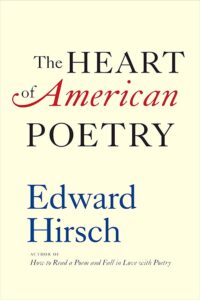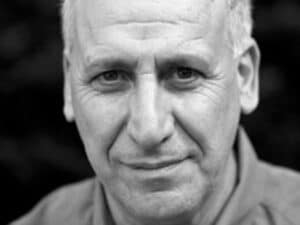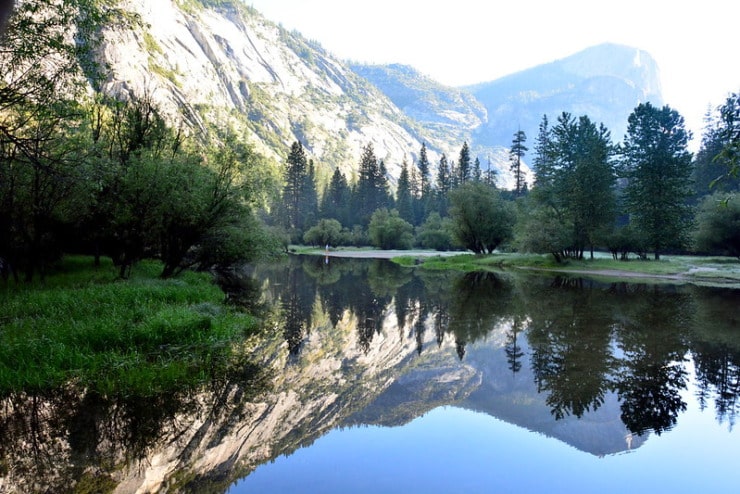Edward Hirsch pens a memoir and a love letter to American poetry
I began to read a recent and highly praised biography of Robert E. Lee, and I was startled by the opening paragraph of the introduction. It was a kind of apology for writing about a man who “committed treason.” My immediate thought was a question: could you say the same thing had the Battle of Gettysburg, for example, gone the other way and ended in defeat for the Union army? My second thought was also a question: are you apologizing for writing your book, trying to justify it in the context of today’s culture wars? I closed the book and put it away.
It’s perhaps a sign of the times we live in.
I had a similar experience — but a different outcome — with The Heart of American Poetry by Edward Hirsch. It’s a combination personal history, memoir, and love letter to American poetry by one of the most distinguished poetry critics of our time. Few people know as much about poetry as Hirsch, himself a poet, essayist, and champion for poetry. He’s published 10 poetry collections and six books of prose, including How to Read a Poem: And Fall in Love with Poetry. He’s been awarded a Macarthur Fellowship, a National Endowment for the Arts Fellowship, and a host of poetry-related prizes. If there’s a poetry establishment in the United States, then Hirsch is at or near the pinnacle.

The included poets and poems are a wonder. All of the poets and many of the poems are well-known; T.S. Eliot’s The Love Song of J. Alfred Prufrock may be one of the most recognizable of all modern poems. But Hirsch includes a few more obscure ones, like Robert Frost’s The Most of It and Edwin Arlington Robinson’s Eros Turannos.
The included poets are a diverse lot, including Anne Bradstreet, Phyllis Wheatley, Henry Wadsworth Longfellow, Gwendolyn Brooks, John Ashbery, and Joy Harjo, once a U.S. poet laureate. They are poems personal to Hirsch, and he explains how he came to read each and what happened as a result.
On a few occasions, I had to remind myself this was a memoir. Thomas Jefferson might have been a racist, as Hirsch writes, or Longfellow anti-Semitic, but that’s using contemporary definitions or taking a historical figure and dropping them into a contemporary cultural context. It’s a common thing to do in these iconoclastic days, but occasionally one wishes the impulse might have been resisted.

Edward Hirsch
If the book contained a major surprise, it was how much T.S. Eliot haunts the memoir, and, by extension, Hirsch’s understanding of and love for poetry. Eliot is mentioned repeatedly. Hirsch’s early admiration and love for The Waste Land eventually transforms into an assessment that the long poem is essentially nihilist. I’m not whether this is a case of Hirsch rejecting a former major influence or seeing more (or perhaps less) than is really there. Nihilist or not, Eliot is the major character of The Heart of American Poetry.
Hirsch has much to say about American poets and poems, and what he says is both valuable and insightful. He’ll remind you of your own first experiences with poems, like Allen Ginsberg’s America and Emma Lazarus’s The New Colossus. You’ll remember teachers and professors, and the friends who insisted you read Wallace Stevens. And you’ll be filled with gratitude for how American poets and their words have enriched your country and your own life.
Photo by reverie_rambler, Creative Commons, via Flickr. Post by Glynn Young.
How to Read a Poem uses images like the mouse, the hive, the switch (from the Billy Collins poem)—to guide readers into new ways of understanding poems. Anthology included.
“I require all our incoming poetry students—in the MFA I direct—to buy and read this book.”
—Jeanetta Calhoun Mish
- Poets and Poems: Avraham Stern and “A Soldier and a Poet” - July 15, 2025
- Poets and Poems: Beth Copeland and “I Ask the Mountain to Heal My Heart” - July 10, 2025
- A.E. Stallings: the Parthenon Marbles, Poets, and Artists - July 8, 2025


Sandra Heska King says
Now I kinda wish you’d pick up that Lee biography again.
L.L. Barkat says
Sounds like an interesting read!
I do wonder whether it is incorrect of Hirsch to go back and say “racist” and “anti-Semitic,” when in fact that is true. True in the sense that the views, while perhaps they were “culturally acceptable” and normative, were still views that devalued others based on their ethnicity. And we have language to describe that. And I think this calls back in quite a fascinating way regarding that label of treasonous—whether we would have applied that label had the war turned a different direction. The question becomes, then, would we call someone “racist” or “anti-Semitic” if we lived in a context where it was perfectly “okay” to be against certain ethnicities? If we recovered the cultural time of Jefferson and Longfellow? Where are the lines, I wonder.
Just thinking out loud here. I might come back later and think again. (Have to take my daughter to work at the moment and have run out of time! 🙂 )